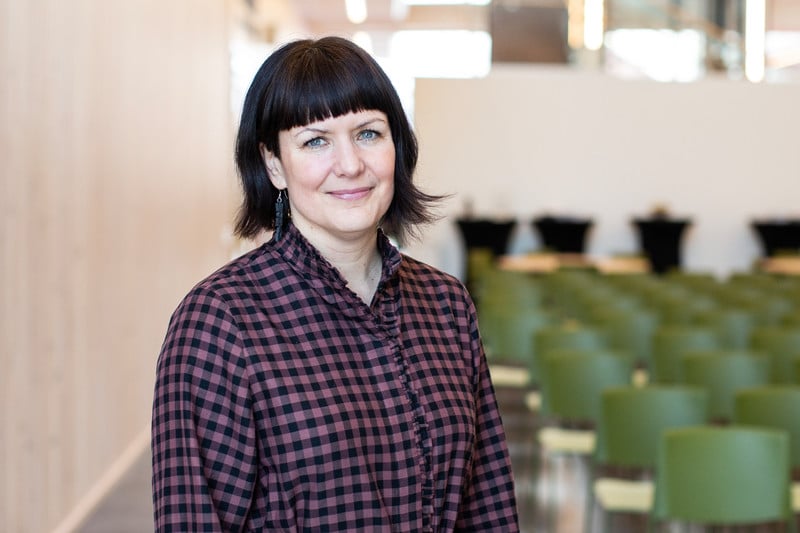H2 Green Steel is now well into the intense process of creating Europe’s first newly built and green steel plant in over 50 years. The green steel plant planned in Boden will be supplied with hydrogen from one of the world’s largest hydrogen plants, in a fully integrated, digitalized, automated and sustainable production facility.
H2 Green Steel’s large-scale investment in Boden not only represents an accelerator for the local and regional societal transition and, in full scale, significant export values for the whole of Sweden. Their initiative is also a symbolic game changer, paving the way for global industry and a new industrial era.
The steel industry accounts for 8 to 10% of the world’s CO2 emissions and 25% of the European industry’s emissions. In total, the European steel industry emits more CO2 than the Nordic countries combined, more than all the flights taking off from Europe.
H2 Green Steel wants to transform one of the world’s dirtiest industries with a technology that reduces the steel industry’s CO2 emissions by as much as 95%. The solution is to use renewable energy instead of coal in the process. The new steel plant is based on a process that replaces the old blast furnace-based technology with direct reduction. This technology has been available for more than 50 years in places where natural gas is available at low cost, but here the fossil natural gas is replaced by green hydrogen.
Biggest and first
The figures describing the scale of the initiative are staggering in many ways.
- The plant in Boden will be the first large-scale green steel plant in the world, with investments in the region of €50 billion.
- The amount of hydrogen planned to be produced here has a volume to fill the Globe – every five hours.
- The industrial area on which the steel plant and associated hydrogen plant will be located is equivalent to just over 1,000 standard-sized football pitches and is larger than Kungsholmen in central Stockholm.
- The planned total building for the entire steel and hydrogen process from start to finish is about 2 kilometers long and 1 kilometer wide.
- The plant will have a production capacity of 2.5 million tons of high-grade steel for the first phase, starting in 2025 with ramp-up in 2026, and 5 million tons by 2030. The factory is estimated to have around 2000 employees.
– The electrolyzer will be one of the largest in the world at that time, in the order of 700-800 MW, compared to the largest in the world today, which is about 20 MW, explains Marita Nilsson, Technology Lead Electrolyzer Systems, H2 Green Steel.

She works with technical analysis, requirements definition and research strategy for electrolysis systems at H2 Green Steel.
She describes hydrogen as a Swiss army knife – it can be used for many things but is not always the best tool.
“We will use hydrogen where it is the most cost-effective solution and where there are no other solutions today, such as in the steel industry. We at H2 Green Steel want to be the first company in a new industry, and we’re going to do it in Boden. Then we can take that knowledge out into the world with Boden as a model,” she says.
Unique conditions in Boden
The location of the steel plant here is because the region offers unique conditions for green steel production with access to energy from renewable sources, high-quality iron ore, a large port in Luleå and a cluster of world-leading expertise in metallurgy and steel production. The zoned industrial land that the municipality of Boden has purposefully set aside for electricity-intensive industries with circular thinking also has the necessary proximity to infrastructure, grid capacity and more that H2 Green Steel was looking for.
A new kind of industry
The new steelworks will be very different from the traditional steelworks, not only in terms of the environment but also in terms of appearance and function. Every part of the site, from factory buildings to green passages for animals and people, is carefully designed to fit in with the surroundings. When everything is built from scratch, even the latest technological solutions can be included naturally from the start.
“This is an amazing journey to be part of, a once in a lifetime opportunity. We will make a real impact. And it’s happening now, not maybe in years to come, but NOW. What we do is unique, we show that it is possible and it will make a difference,” says Marita Nilsson.
Did you know that:
The EU has highlighted the development of renewable hydrogen as crucial to achieving the climate targets of reducing climate emissions by at least 55% by 2030.
EU member states should be fully climate neutral by 2050.
Green hydrogen is identified as an important part of the global societal transition and human climate impact, and Boden as a future node in a northern hydrogen network.
Both societal benefits and business opportunities are predicted to increase with green hydrogen.
Hydrogen events
Earlier this spring, an event was held within the framework of Bodenxt Talks focusing on the future possibilities of hydrogen. Here is a summary of that day where Marita Nilsson was one of the speakers:
Read more:
Green hydrogen could be the gasoline of the future
Boden a hub for hydrogen in the Nordics
H2 Green Steel
Photo: Mats Engfors Fotographic, Sandell Sandberg, KOMM Boden Municipality, film KOMM Boden Municipality.